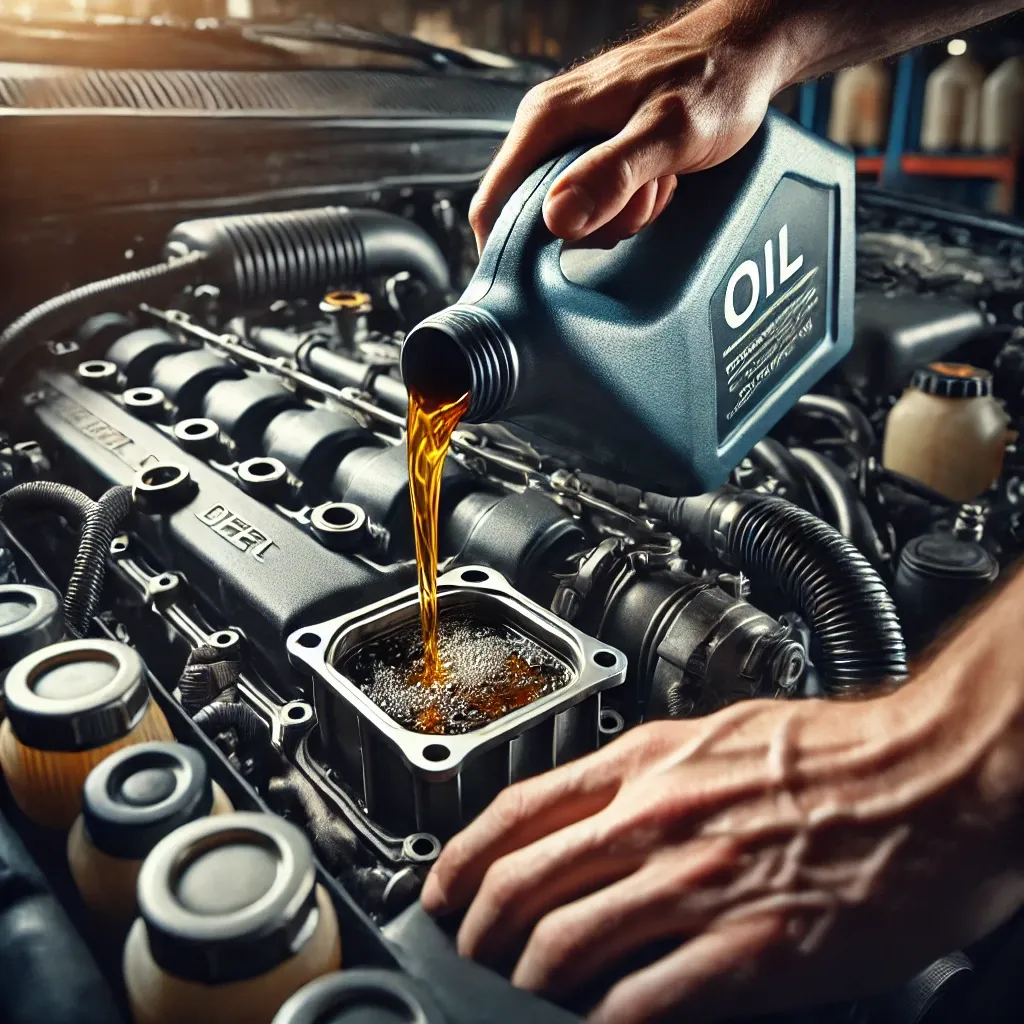Wondering when to change the engine oil in your diesel vehicle? Discover the ideal engine oil replacement cycle, factors that influence it, and how it ensures engine longevity and efficiency. Read on for expert advice.
Maintaining a diesel engine involves regular checks and replacements, one of the most important being the engine oil. Understanding the diesel vehicle engine oil exchange cycle is critical to keeping your vehicle running smoothly and extending its lifespan. In this article, we will explore the ideal oil change frequency, the importance of timely oil replacement, and best practices for maintaining engine oil in diesel vehicles.
Diesel Vehicle Engine Oil Exchange Cycle
Engine oil serves a crucial role in the performance of any vehicle, especially in diesel engines. It lubricates moving parts, reduces friction, and prevents overheating. However, over time, the oil degrades, losing its effectiveness. The cycle for oil exchange depends on several factors, including the type of oil, the engine’s usage, and the driving conditions.
Factors Affecting Diesel Engine Oil Exchange Cycle:
-
Oil Type Synthetic oil typically lasts longer than conventional oil. Diesel engines often require synthetic oil due to the high temperatures and pressure they endure.
-
Driving Conditions Frequent short trips, towing, and stop-and-go driving can accelerate oil breakdown. In contrast, highway driving may extend the oil’s lifespan.
-
Engine Load Engines that operate under heavy load (e.g., trucks or those used in construction) tend to require more frequent oil changes.
-
Oil Quality High-quality oils can go further, reducing the frequency of oil changes.
-
Manufacturer Recommendations Always refer to the manufacturer’s maintenance schedule for oil changes, as they provide guidelines tailored to the vehicle’s specific needs.
The typical diesel engine oil exchange cycle is anywhere between 7,500 to 10,000 miles or about 12,000 to 16,000 kilometers. However, this may vary depending on the factors mentioned above. Using high-quality synthetic oil might extend the period between changes, but regular monitoring is always recommended.
👉 Learn more about diesel engine oil change cycle 👈
Diesel Vehicle Engine Oil Replacement Time
The replacement time for diesel engine oil refers to the recommended interval between oil changes to ensure the engine remains protected and runs efficiently. However, determining the right time to change your diesel vehicle’s engine oil involves considering several critical elements.
How to Determine When to Replace Diesel Engine Oil:
-
Mileage Most diesel engines require oil changes every 7,500 to 10,000 miles. However, this can vary based on your vehicle’s specific needs.
-
Oil Monitoring Systems Some modern diesel vehicles are equipped with oil monitoring systems that notify the driver when an oil change is needed.
-
Oil Condition If the oil becomes thick, dark, or has an unusual smell, it may be time for a change.
-
Driving Habits If you frequently drive in harsh conditions (e.g., extreme temperatures, towing), it might require more frequent oil changes.
-
Color and Consistency Healthy engine oil typically appears amber or golden in color. If the oil is darker and thick, it’s time to replace it.
The key to determining oil replacement time is regular monitoring and understanding your vehicle’s needs. Always follow the manufacturer’s guidance, but take into account the actual condition of the engine oil based on your driving habits.
👉 Explore optimal engine oil replacement time for diesel vehicles 👈
Light Car Engine Oil Exchange Cycle
While diesel vehicles require specialized oil due to the nature of their engines, light car engine oil exchange cycles are generally more frequent. These vehicles have smaller engines and less intensive lubrication requirements, but proper maintenance is still essential for vehicle performance.
Understanding the Light Car Engine Oil Exchange Cycle:
-
Oil Change Frequency The typical range for light car oil changes is 3,000 to 7,500 miles, depending on the vehicle and oil type.
-
Driving Patterns Frequent short trips or city driving might require more frequent changes, while long highway trips can extend oil life.
-
Oil Type As with diesel engines, synthetic oils in light cars last longer than conventional oils, reducing the frequency of changes.
-
Manufacturer Guidelines Always refer to the vehicle’s user manual, as car manufacturers provide the best oil change intervals based on the model and engine type.
-
Performance Monitoring Using an oil monitoring system can help ensure timely oil replacements and prevent engine damage.
It’s essential to stay on top of your light car’s oil exchange cycle, as neglecting this maintenance can lead to engine wear, reduced fuel efficiency, and costly repairs.
👉 Learn about light car engine oil exchange cycles 👈
Conclusion
Maintaining a proper engine oil exchange cycle is essential for the longevity and performance of your vehicle, whether it’s a diesel truck or a light car. Regular oil changes help keep the engine running smoothly, improve fuel efficiency, and reduce the risk of costly repairs down the road. By following manufacturer recommendations and paying attention to oil quality and driving conditions, you can ensure that your vehicle remains in top condition for years to come. So, when was the last time you checked your engine oil?
Remember, timely oil replacements are more than just a maintenance task – they’re an investment in your vehicle’s future.






